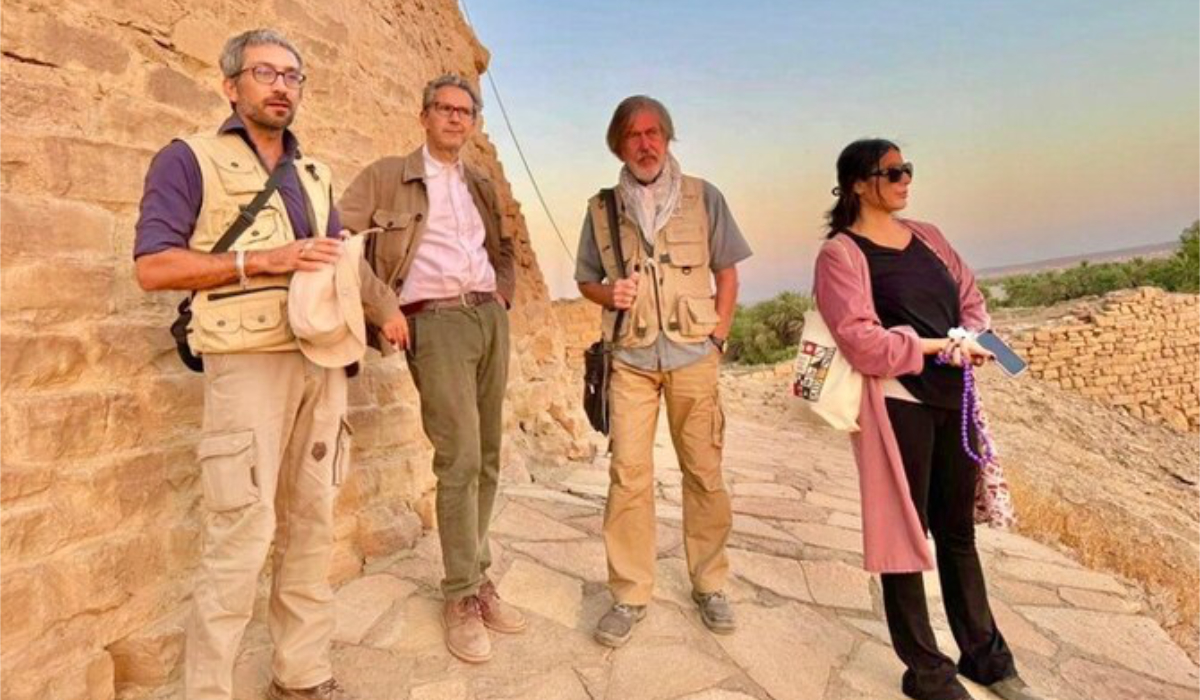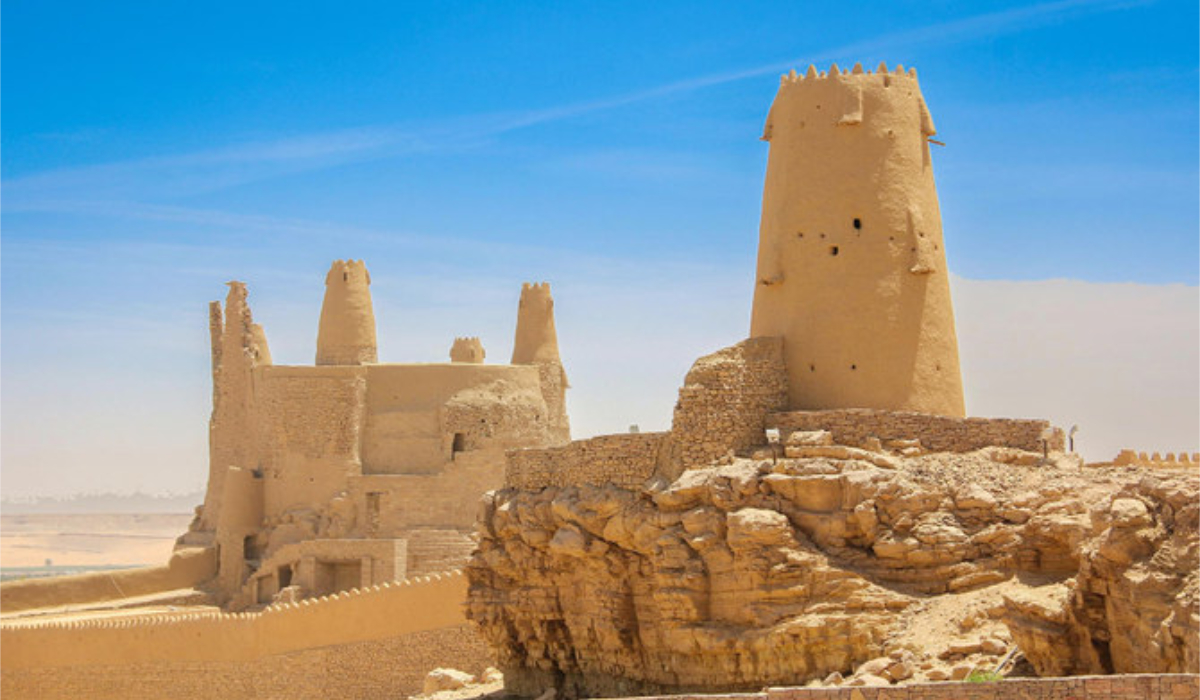JEDDAH: Eid Al-Fitr festivities are in full swing in Saudi Arabia, and this joyous occasion is not only a time for gratitude but also for cherished family traditions and delicious sweets.
Eid Al-Fitr, which marks the end of fasting, is one of Islam’s two official festivals — the other being Eid Al-Adha. While the essence of the celebration remains consistent, the customs and practices surrounding Eid Al-Fitr vary across regions, each community adding its own touch while celebrating the common theme of joy.
In Saudi Arabia, the exchange of chocolates, sweets, new clothes and Eidiyah are hallmarks of Eid Al-Fitr. Families gather to perform prayers at mosques, host gatherings for meals and coffee, and extend acts of kindness to those in need.
A prominent tradition during Eid is the emphasis on family unity. Generations come together in the homes of elders to share stories, laughter and love. Relatives from near and far reunite, strengthening familial bonds and creating cherished memories.
Night before Eid
In every Saudi household, the aroma of burning bakhoor incense fills the air on the eve of Eid. Traditional Arab Eid songs, such as “Farha Farha” by Ali Abdulkarim, Umm Kulthum’s legendary “Ya Leilet El-Eid,” Safaa Abou As-Su’ood’s “El-Eid Farha,” and Mohammed Abdu’s timeless “W Min Al-Aideen,” resonate from loudspeakers, adding to the festive ambiance.
It is a habit to stay awake on the eve of Eid out of sheer joy and anticipation of the festivities. It is also a tradition for relatives to ask, “Are you ‘mwasel’?” which translates to “Are you still awake from last night?” and the answer is always, yes.
Homes are adorned with decorations and coffee and tea is freshly brewed along with an elaborate assortment of desserts and chocolates taking center stage. Clothes are carefully ironed and perfumed for this festive day.
Families across the Kingdom give special care to chocolate arrangements, as it represents not only a sign of happiness but also generosity and hospitality. According to local Halima Shaaban: “A lady’s love for buying fancy chocolates for Eid showcases her appreciation for quality and luxury.”
With meticulous care, she selects a new chocolate tray and adorns it with exquisite chocolate arrangements from renowned brands such as Patchi, Chocoline, Tawa, Bateel, Venchi, Chocolicious, and more.
Reflecting her devotion to creating a truly memorable Eid celebration, Shaaban said: “The selection process becomes a delightful ritual, symbolizing the joy and sophistication associated with such special occasions.
“By choosing chocolates from brands known for their premium offerings, it adds a touch of elegance to the festivities, ensuring that each indulgent treat is not just a delight to the taste buds but a feast for the eyes, embodying the spirit of Eid in a truly luxurious and delightful manner.”
Traditional sweets
Eid Al-Fitr celebrations in Saudi Arabia are incomplete without the array of delectable sweets that grace dining tables, adding to the festive ambiance and delighting taste buds. From traditional favorites to modern creations, these sweets hold a special place in the hearts of those celebrating.
Ghorayeba, the melt-in-your-mouth butter cookies, are a cherished Eid treat found in homes across Saudi Arabia. Made with simple ingredients such as flour, butter and powdered sugar, ghorayeba are often infused with fragrant touches of rose water or cardamom. These bite-sized delights are perfect with aromatic Saudi coffee.
Maamoul, another beloved Eid sweet, is a cookie filled with dates, nuts or sweetened semolina. These intricately shaped cookies, molded with care, are as visually stunning as they are delicious. Enjoyed alongside a steaming cup of traditional Arabic tea, maamoul has become an indispensable part of Eid festivities.
Maram Sendi, a homemaker from Jeddah, shared her tradition of making maamoul with her daughters during the last days of Ramadan. “We work together to prepare the dough and fill it with dates or pistachios paste, then we shape it using vintage molds, creating cherished memories in the kitchen, where the smell of fresh baking fills the air.”
Debyazah, a traditional sweet dish, is an essential component of the Eid breakfast in Saudi Arabia, particularly in the Hijaz region. Prepared days in advance, Debyazah features Qamar Al-Din, a thick apricot nectar, combined with fresh nuts such as almonds, pistachios and pine nuts, along with dried fruits such as figs, apricots, dates and raisins.
To the salon
For Eid, while men shape and trim their beards, women and girls engage in beauty rituals to rejuvenate themselves after 30 days of fasting, increased worship and activities that may have resulted in disrupted sleep. The focus shifts to salon visits, including hair coloring and facial treatments.
Salon owners eagerly await Eid as women flock to pamper themselves with various services, leading to a surge in sales. Rahma Mohammed, owner of a salon in Jeddah, told Arab News: “The last three days of Ramadan have been the busiest for over 30 years, with crowds of women seeking skincare treatments, haircuts and dyeing services. Everyone aims to look their best on Eid.”
It’s Eid!
After the Eid Al-Fitr prayer, families, accompanied by their children, gather either at home or in restaurants to relish a breakfast spread of both traditional and modern dishes.
Maha Al-Harbi, a Jeddah local, said: “I prefer savoring our homemade family breakfast as it’s a cozy affair steeped in tradition, and I relish celebrating the moment in the comfort of our home.”
Another resident of Jeddah, Tariq Dabbagh, said: “I enjoy organizing a family Eid breakfast at a restaurant to bring joy and peace of mind to my wife, mother and other female family members, as a reward after a month filled with cooking and kitchen duties.”
The tradition of giving Eidiyah (Eid money or gifts) and children’s giveaways adds to the excitement and anticipation of Eid. Ghadeer Omar, a kindergarten teacher from Alkhobar, is from a family that celebrates the first day of Eid with a fun-filled program. She told Arab News that every year during Eid, she takes the lead in preparing Eid gifts for children of different age groups.
Omar said: “I enjoy creating special gifts with light-hearted and entertaining questions to stimulate children’s thinking skills and creativity, while also steering them away from unhealthy candies.”
The Saudi Ministry of Culture and General Entertainment Authority has introduced an Eid Season Events calendar under the theme “Your Eid, With Your Family,” offering a variety of activities for families looking to celebrate outside their homes. This includes firework displays, concerts featuring renowned singers from the Arab world performing across the Kingdom, stand-up comedy shows and theatrical plays.






















































